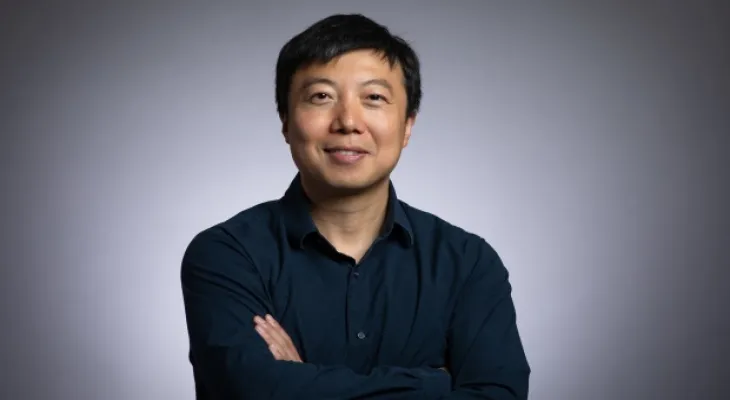Search here
Newspaper
Search here

Arab Canada News
News

Published: September 20, 2023
The largest network of research hospitals in Canada has appointed a chief artificial intelligence scientist to harness the promising technology that has the potential to accelerate diagnosis, improve and personalize patient care, and shorten recovery times.
Bo Wang, whose expertise in the University Health Network based in Toronto includes machine learning and computational biology, takes on this role after the launch of the University Health's artificial intelligence center earlier this year.
The hospital network says the center brings together doctors and researchers working with artificial intelligence in fields including cancer and cardiovascular disease.
Wang will lead research on how to use the vast amounts of de-identified patient data collected from the diverse population of the Toronto area to improve care.
He said some AI applications he hopes to explore include developing personalized treatment plans and automated generation of clinical notes.
Wang said in an interview: "The goal is to enhance the adoption of AI in healthcare; we have a lot of research but its adoption is very rare, and I want to change that."
The University Health Network is not alone in exploring the uses of artificial intelligence in healthcare. Other hospitals across Canada are using this technology in limited ways, such as analyzing medical test results, under the supervision of radiologists.
The ultimate goal is to create individualized treatment plans by having AI analyze vast amounts of information and identify patterns based on everything from genetic data to patient symptoms, lab results, and medications.
Wang said the University Health Network will work with private companies to integrate its AI solutions into clinical practice after receiving approval from Health Canada for these technologies.
He noted that as a founding member of the Mayo Clinic Data Network in the United States, the University Health Network will also have access to datasets from other countries, including Israel and Brazil.
Wang, who is also a faculty member at the Vector Institute in Toronto specializing in artificial intelligence, was one of the key developers of a prototype model called Clinical Camel, which was trained on data from thousands of de-identified medical records of the network. He said it can summarize long conversations between doctors and patients into clinical notes in seconds.
Wang added that healthcare providers would need to approve the notes and could also add information about the patient's mood or emotional state. Doctors can also ask the chatbot questions about the symptoms of certain diseases and diagnoses to inform their patient care decisions.
However, the so-called generative AI model, which is still being developed with researchers from the University of Toronto and McGill University in Montreal, needs improvements to make it more reliable. Wang said Health Canada would need to approve the program to ensure accuracy and safety so that it does not make false predictions about diagnoses, adding that the regulatory body also needs to be convinced of patient privacy protection.
Many companies are also working on developing similar language models to document consultations between doctors and patients and increase efficiency.
Wang said of this technology: "This hasn’t happened anywhere yet, but we are seeing a lot of demonstrations, a lot of announcements from major companies like Microsoft."
The University Health Network says it hopes to expand the narrow AI applications already in use in its hospitals. Wang noted that at the Princess Margaret Cancer Centre, for example, radiation treatment times have been reduced by nearly half in some cases, based on a predictive model built on UHN data about patient recovery after treatment, response to certain medications, and survival times.
"This AI model can automatically decide what the optimal dose is for each radiation (treatment) for this specific patient and what the time interval should be between different radiation treatments. This increases your chances of survival and enhances your recovery after treatment."
"The patient’s wait time is less, the radiation exposure for the patient is less, without sacrificing treatment effectiveness. We are looking at improvements of about 40 to 50 percent in radiation."
Brad Waters, executive vice president of science and research at the university network, said while AI represents a tremendous opportunity in healthcare, there are "clear concerns" regarding patient privacy and data protection.
For this reason, the network will not share its de-identified data with the Mayo Network or vice versa.
He said: "What is shared, in fact, is the algorithms and tools that train on the data. The data never actually leaves or gets mixed up or is under the stewardship of any other organization."
Comments